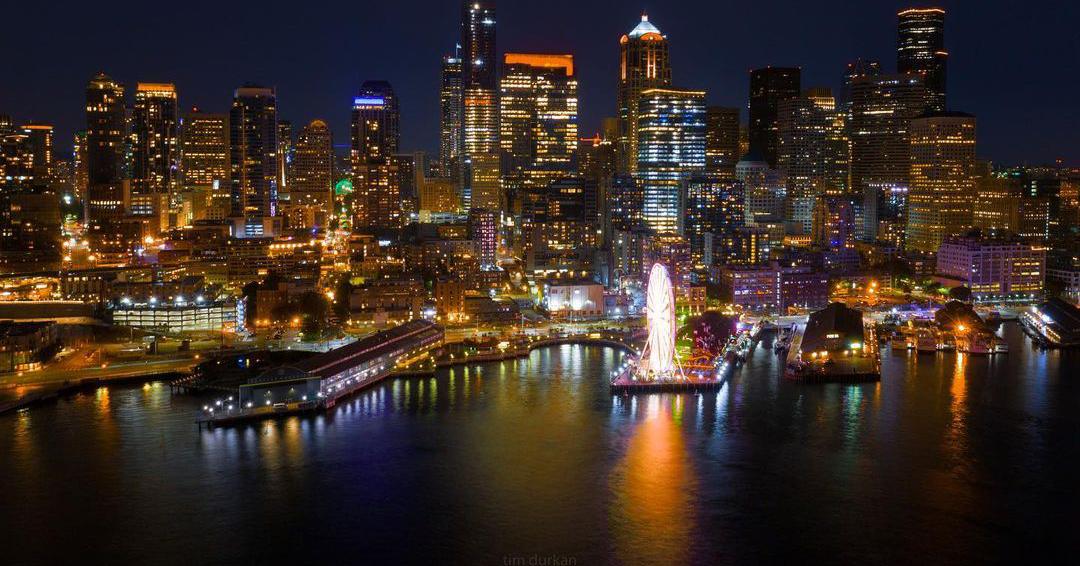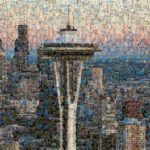
SEATTLE (June 29, 2021) – Mayor Jenny A. Durkan is transmitting legislation to the City Council to allow more flexibility in permitted uses for empty downtown storefronts as Seattle seeks to revitalize the heart of the city with new shops and businesses. If passed by the City Council, the new temporary proposal would provide flexibility for businesses, artists, and other organizations to activate empty storefronts by allowing art installations, museums, and a greater variety of businesses, among other new options.
More than 450 downtown businesses have shuttered due to loss of foot traffic and other economic stresses during the pandemic, according to the Downtown Seattle Association. Many storefronts remain empty or closed. Before this legislation, downtown businesses had to abide by a much narrower set of permitted uses for storefronts.
“Downtown is Seattle’s economic engine and heartbeat, and it’s up to us to help it come back better than ever for all those who live, work, or visit. As part of our effort to revitalize downtown, we’re making it easier than ever to pursue new, innovative uses for storefronts, like art installations or museums,” said Mayor Durkan. “This temporary change to allow more uses for our storefronts will help restore the vitality of our downtown. Building on my plan to invest in downtown small businesses and recovery, I hope the City Council swiftly passes this bill.”
“When our city is at its best, Downtown is where Seattleites congregate on a daily basis to work, recreate, enjoy the neighborhood’s 14,000 small businesses, or live,” said Councilmember Andrew J. Lewis, who represents Downtown. “Before the pandemic, 170,000 Seattle residents visited Downtown. By temporarily allowing new uses to activate empty storefronts, we can re-welcome our friends across Seattle to this unique neighborhood while helping out some of the people who were hit hard economically over the last year,” said Councilmember Andrew Lewis (District 7, Pioneer Square to Magnolia).
“I am excited to provide Downtown storefronts with the flexibility they need to recover from this pandemic. In February, I provided flexibility for entrepreneurs to incubate their ideas and dreams in their garages and grow their small businesses to fill brick and mortar storefronts. This legislation opens a pathway for new businesses and new opportunities downtown,” said Councilmember Dan Strauss (District 6, Northwest Seattle).
The new ordinance would allow more flexibility in storefront uses on downtown streets that had once enjoyed the most foot traffic. Under this proposal, for the next 12 months, the City would allow permit applications for new businesses to provide a wider range of activities and services, including medical offices, gyms, art installations, and bike parking. Businesses that received a permit and invested in a new storefront under this temporary ordinance could remain indefinitely, but they would not be able to expand their footprint in future years.
This new flexibility will be available on the main shopping streets in the commercial core, Belltown, and Pioneer Square, where new options for permitted businesses would also include food processing, horticultural operations, and crafts manufacturing. Chinatown-International District businesses already have this kind of permitting flexibility through the International Special Review District.
“Where we shop, dine, and gather generates cultural life in our community,” said Rico Quirindongo, director of the Office of Planning and Community Development. “As we pursue an equitable recovery, we want to support a lively, attractive streetscape that welcomes people back to downtown with unique and memorable experiences.”
“I strongly encourage small business owners to take advantage of the new opportunities currently available in the Downtown Seattle corridor. This is a moment when culture and community can courageously activate their visions and ideas to elevate their product positioning for scale and expand their audience and customer base, especially creators who are Black, Indigenous and People of Color who desire to grow their businesses,” said Veronica Very, founder and co-owner of the new Wonder of Women art gallery now located in Pacific Place. “When we pursue these opportunities, we not only heal our communities, but we make the sacrifices and the struggles for social justice count!”
The Seattle Department of Construction and Inspections (SDCI) would administer these emergency provisions. To ease the transition for businesses seeking to establish new locations downtown, SDCI is also adding a permitting facilitator to support applicants through what can be a complicated, multi-agency process. SDCI would also prioritize downtown street-level permit applications in its existing review processes. As this permit facilitation effort continues, SDCI may seek to expand it to serve businesses seeking permits in other areas of the city.
“This temporary legislation would expand the range of business types allowed at street-level downtown,” said Nathan Torgelson, director of the Seattle Department of Construction an Inspections. “We must continue to provide targeted permitting support as our businesses recover, which is why we’ll also be providing a new single point of contact and prioritizing the process to assist with street-level permitting downtown.”
As part of the City’s $9 million investment in downtown recovery, last week the Mayor announced that the City would spend at least $500,000 to support storefront activations – providing resources for small businesses and arts and cultural organizations that want to come downtown and bring new life to the streetscape. In the coming weeks, the City will announce additional efforts to activate empty storefronts, including potential matchmaking services for small businesses or artists to find empty storefront space, as well as additional financial supports.
The City Council will review this legislation in the Land Use & Neighborhoods committee in July.

